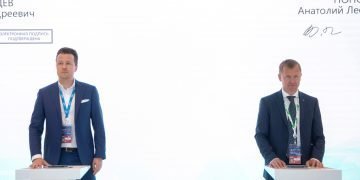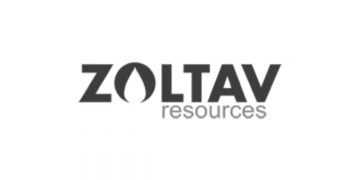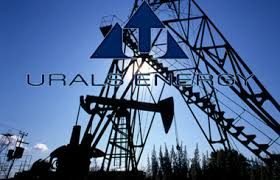Max Petroleum: Sberbank Loans Renegotiated, Asanketken Field Given FFD Green Light
Max Petroleum Plc, an oil and gas company focused on Kazakhstan, announces today an corporate and operational update.
Subscription by AGR Energy
On 4 August 2014, Max Petroleum announced that it had raised conditionally approximately £37.1 million before expenses by way of a cash subscription by AGR Energy Limited No. I (“AGR Energy”) for 2,264,093,462 new Ordinary Shares at a price of 1.64 pence per Ordinary Share (the “Subscription”), such that AGR Energy would hold 51% of the Enlarged Issued Share Capital immediately following completion of the Subscription. AGR Energy is a vehicle owned by the Assaubayev family established for the purpose of the Subscription.
Discussions between the Company and AGR Energy continue in respect of certain terms of the Subscription. Further updates will be provided in due course, as appropriate.
Debt position and liquidity
The Group is highly geared, with US$82.8 million currently outstanding under the Sberbank Facility Agreement, due to be repaid in full by 27 November 2017. As announced on 20 August 2014, the Group was in breach of certain banking covenants related to production and reserves at 31 March 2014. Subsequently, the Group filed an application with Sberbank to reset the production and reserves covenants to reflect the lowered expectations of the Group based on the RSC estimation of total 2P reserves of 9.5 mmboe as at 31 March 2014. Sberbank has now approved the reset of the production and reserves covenants with effect from September 2014 and the Group is currently in compliance with its loan covenants. The Group has paid all interest and principal payments due under the Sberbank Facility Agreement, each of which has been paid in full when due.
The 2014 Annual Report and Accounts of the Company noted the risk that the necessary approvals to complete the Subscription may not be obtained, and the consequent uncertainty about whether the Subscription proceeds of £37.1 million will be received by the Group. In the event that the necessary approvals are not received and the Subscription (or a 2 similar infusion) does not proceed, it is not certain that an alternate source of additional
debt or equity financing will be available. Further, the Group is due to make a US$3.2 million principal payment under the Sberbank Facility Agreement in December 2014 and a further US$6.8 million principal payment in March 2015. Thereafter, quarterly principal repayments of US$6.6 million are required to be made through November 2017, such that total principal payments required to be made during calendar year 2015 amount to US$26.6 million.
In the event that the Subscription does not complete and no additional funding is procured, the Group’s projected level of cash flow, after taking into account its debt servicing costs, will be insufficient to allow the Group to recommence its capital programme.
The 2014 Annual Report and Accounts of the Company also stated that: “based on the Group’s cash flow forecasts and assuming the suspension of its capital programme, the directors believe that the Group will be able to continue servicing its interest and principal payments under the Sberbank Facility Agreement as they fall due. However, these forecasts are necessarily based on the achievement of timing and targets, some of which, although believed to be reasonable by the directors, are nevertheless outside the Group’s direct control. If significant delays or underperformance of production or revenue targets were to take place, these may render the Group’s cash resources insufficient.”
In addition, since the date of publication of the 2014 Annual Report and Accounts of the Company in August 2014, Brent crude oil prices have fallen significantly, which has had an adverse effect on the Group’s current cash flows and, if oil prices remain at or below current levels, will have an adverse effect on future cash flows. Assuming both that Brent crude oilprices remain at or below current levels and that the Group’s capital programme remains
suspended, the Group’s current cash flow forecasts (using a nominal US$85/bbl Brent crude oil price) indicate that the Group will not be able to continue servicing its interest and principal payments under the Sberbank Facility Agreement as they fall due, starting with the US$3.3 million principal payment due in December 2014. The directors intend to enter into discussions with Sberbank with a view to seeking to agree, as soon as possible, a moratorium on principal payments, including the US$3.3 million principal payment due in December 2014, and the restructuring of the Sberbank Facility Agreement.
Even if Sberbank and the Company agree a moratorium on principal payments under the Sberbank Facility Agreement, any further significant delays or underperformance of production or revenue targets or timing would require the Group to obtain additional debt or equity capital to continue in operation.
Review of strategic options and formal sale process
The review of strategic options and the formal sale process announced on 22 July 2014 continues. Its purpose remains to elicit competing, superior proposals to the Subscription. A broad process has been undertaken and as of today no such deliverable proposal has been put forward to the Board. In addition there can be no certainty that any such proposal will be made nor as to the terms on which any such proposal might be made. Parties with a
potential interest in making an offer for, merging with or proposing other forms of corporate 3 transaction with, Max Petroleum should contact the Blackstone Group International Partners LLP (see contact details below).
FFD Approval for Asanketken Field
The Group also announces that the Government of the Republic of Kazakhstan has granted regulatory approval to convert the Asanketken Field to full field development (“FFD”) status effective immediately. FFD approval will allow Max Petroleum to fully develop and produce the Asanketken Field and sell 80% of crude oil production from Asanketken on the export market under the terms of its Blocks A&E exploration and production contract. Asanketken is currently capable of producing approximately 600 barrels of oil per day from its four productive wells.
Production Update
Production for the six month period to 30 September 2014 averaged 4,239 bopd, up 2% on 4,170 bopd in the six months to 31 March 2014 and up 17% on 3,630 bopd in the six month period to 30 September 2013. Since then, total production has averaged over 4,000 bopd comprising production from fields on continuous production of approximately 3,300 bopd, with the balance contributed by variable Test Production from the Sagiz West and East Kyzylzhar I fields. The Test Production is expected to be shut-in during the course of the remainder of the year as Test Production periods end. The Sagiz West and East Kyzylzhar I fields are expected to commence continuous production under a Trial Production Project in mid-2015.






